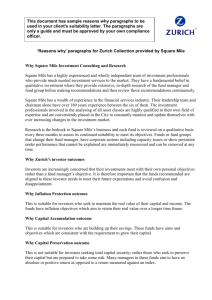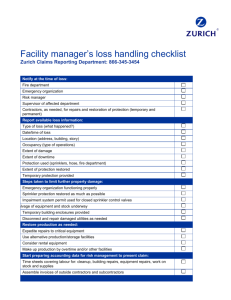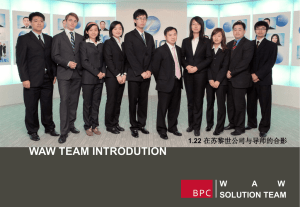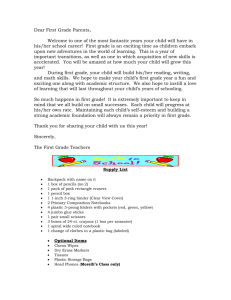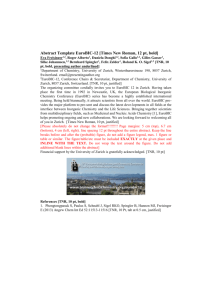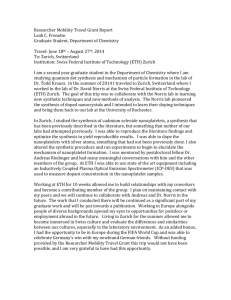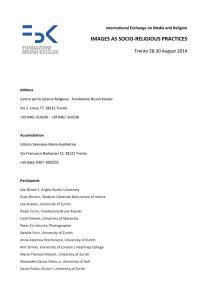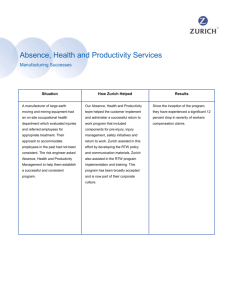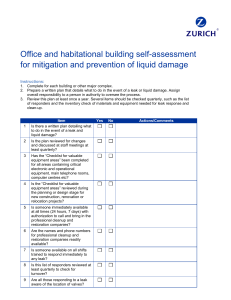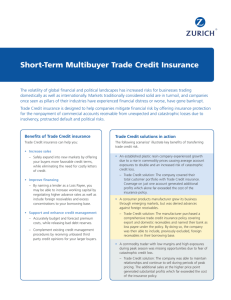Warehouse management of change inspection checklist
advertisement
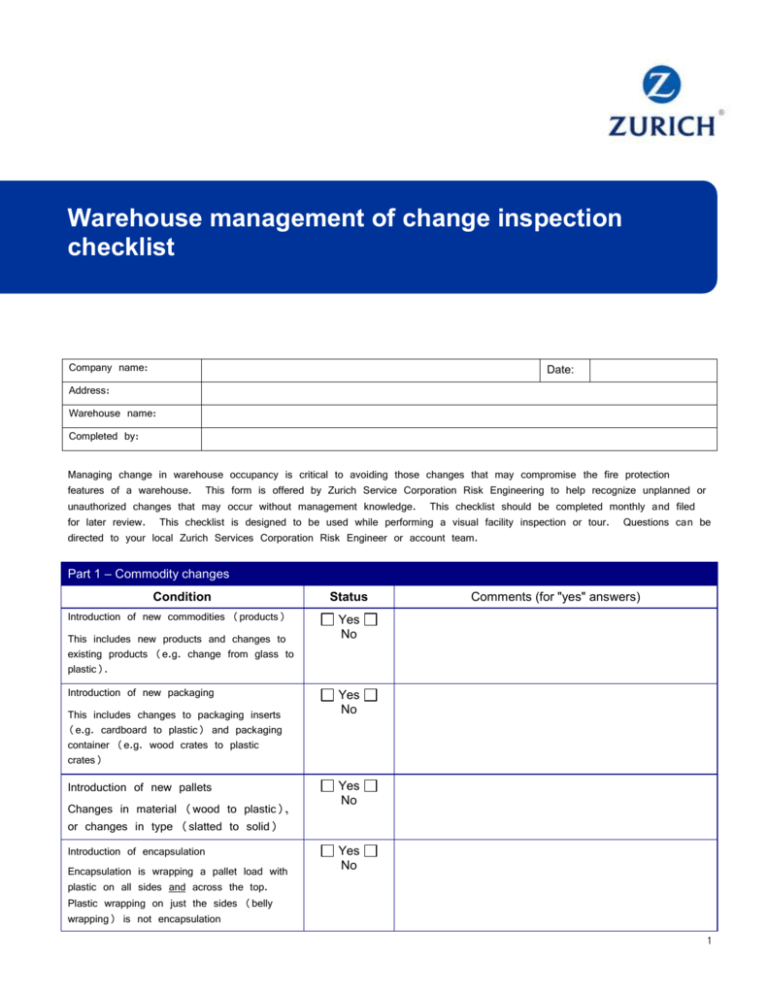
Warehouse management of change inspection checklist Company name: Date: Address: Warehouse name: Completed by: Managing change in warehouse occupancy is critical to avoiding those changes that may compromise the fire protection features of a warehouse. This form is offered by Zurich Service Corporation Risk Engineering to help recognize unplanned or unauthorized changes that may occur without management knowledge. This checklist should be completed monthly and filed for later review. This checklist is designed to be used while performing a visual facility inspection or tour. Questions can be directed to your local Zurich Services Corporation Risk Engineer or account team. Part 1 – Commodity changes Condition Introduction of new commodities (products) This includes new products and changes to existing products (e.g. change from glass to plastic). Introduction of new packaging This includes changes to packaging inserts (e.g. cardboard to plastic) and packaging container (e.g. wood crates to plastic crates) Introduction of new pallets Changes in material (wood to plastic), or changes in type (slatted to solid) Introduction of encapsulation Encapsulation is wrapping a pallet load with plastic on all sides and across the top. Plastic wrapping on just the sides (belly wrapping) is not encapsulation Status Comments (for "yes" answers) Yes No Yes No Yes No Yes No 1 Additional comments: Part 2 – Storage changes Condition Aisles clear of storage Storage or staging in aisles is discouraged Restricted areas clear of storage This includes areas near fire hose connections, space heaters, industrial truck battery charging stations, exit corridors, and electrical switchgear rooms Storage heights within permitted limits Established maximum storage heights are not exceeded. Also, no storage is permitted within 18 in (0.45 m) of any control mode sprinkler and 3 ft (0.9 m) of any ESFR sprinkler Idle pallets within permitted limits Confirm permitted limits with your Zurich representative. Rack flue spaces are maintained Walk each aisle to verify flue arrangement. Status Comments (for "no" answers) Yes No Yes No Yes No Yes No Yes No Flue spaces are the spaces between pallet loads (side-to-side and back-to-back) in a rack, and are generally 6 in (15 cm) or greater Storage aides the same Changes in storage handling devices such as introducing open top containers, plastics totes, solid shelving, etc. Yes No Additional comments: Part 3 – Hazardous materials changes Condition Hazardous materials present in general storage Status Comments (for "yes" answers) Yes No This includes flammable or combustible liquids, Level 2 and 3 aerosols, oxidizers, organic peroxides, explosives, and radioactive 2 materials Additional comments: Part 4 – Building conditions Condition Fire doors are in operable condition Fire doors move freely, are not obstructed, and have no visible signs of damage Fire wall penetrations are protected with adequate firestopping systems, fire dampers, or fire doors Status Comments (for "no" answers) Yes No Yes No All penetrations including wire, conduit, pipe, ducts, and door openings Appropriate floor markings and signage Aisles, exits, fire extinguishers, etc. Yes No Fire protection provided within internal structures Yes No Sprinklers installed in coolers, freezers, offices, etc. Additional comments: Part 5 – Fire protection conditions Condition Status Sprinkler valves are secure, open and accessible Yes No Fire hose connections are accessible and in good condition Yes No Fire extinguishers are accessible and in good condition Yes No System water pressure normal Yes Comments (for "no" answers) 3 Pressure observed at riser or inlet of fire pump is within the normal range No Additional comments: Part 6 - Comments 4 Zurich Services Corporation Risk Engineering 1400 American Lane, Schaumburg, Illinois 60196-1056 800 982 5964 www.zurichna.com The information in this publication was compiled by Zurich Services Corporation from sources believed to be reliable for informational purposes only. All sample policies and procedures herein should serve as a guideline, which you can use to create your own policies and procedures. We trust that you will customize these samples to reflect your own operations and believe that these samples may serve as a helpful platform for this endeavor. Any and all information contained herein is not intended to constitute legal advice and accordingly, you should consult with your own attorneys when developing programs and policies. We do not guarantee the accuracy of this information or any results and further assume no liability in connection with this publication and sample policies and procedures, including any information, methods or safety suggestions contained herein. Moreover, Zurich Services Corporation reminds you that this cannot be assumed to contain every acceptable safety and compliance procedure or that additional procedures might not be appropriate under the circumstances The subject matter of this publication is not tied to any specific insurance product nor will adopting these policies and procedures ensure coverage under any insurance policy. ©2012 Zurich Services Corporation
